Artificial Intelligence for Revisionism
I remember dimly reading articles online where mainstream authors were outraged – and revisionist bloggers quite pleased – that artificial intelligence (AI) seems to side with revisionist arguments when it comes to technical questions. This also seems to be the case with some political topics, were politically “incorrect” conclusions are drawn by data-gathering and analyzing computers. Hence, mainstream programmers were tasked with teaching computers how to lie, cheat, obfuscate, and skew data selection and interpretation to fit predefined conclusions and results. If computers ever develop real intelligence to assess what we make them do, they will be utterly disgusted. As the majority of us behave in this regard, we probably deserve the fate some fear AI will make us have: the extinction of the human race from planet earth as an invasive species threatening the survival of the entire planet.
There is little any one of us can do about it. AI seems irretrievably unleashed by the Silicon-Valley and Chinese tech giants, competing for dominance in a new global arms race. The genie is out of the bottle, and we’re mere spectators. Hence, I will not dwell any more on this dystopian topic here, but rather focus on some more-mundane aspects of AI.
I use AI myself. I mentioned in the Book Announcements of the last issue that I use text-to-speech software to proof our books. Just as I started working on putting all Inconvenient History issues in print, Adobe unrolled their AI-driven “neural filters.” What these filters can do I show here in a series of juxtapositions, left the original low-quality photo, right the photo that Photoshop produced with AI. Enjoy the ride. Well, if you ever get your hands on any of the new print editions of Inconvenient History, you’ll benefit from those high-quality photos, except for the recolored ones; they still get printed in b&w only. Anyway, no more crappy illustrations.
Note that some AI filter features were only unrolled while I had done some Inconvenient History volumes already, so not all photos included in the print editions joyed the full improvements that would have been possible with the current set of filters available – or future ones, for that matter.


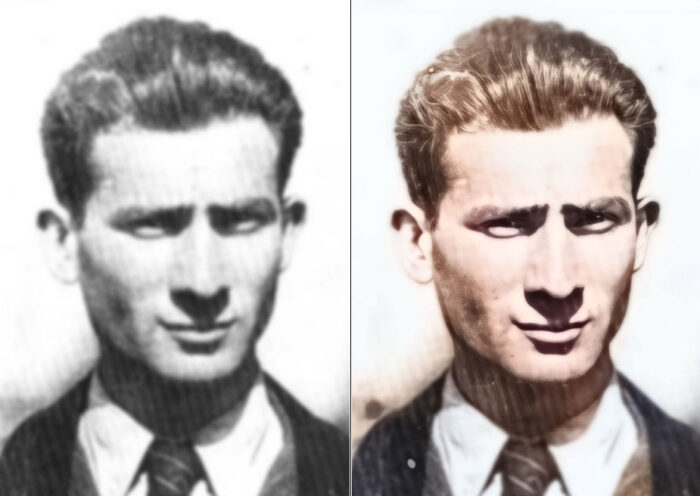
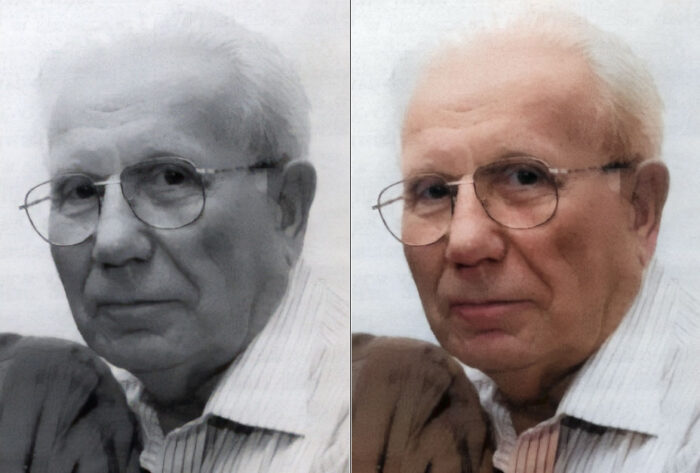

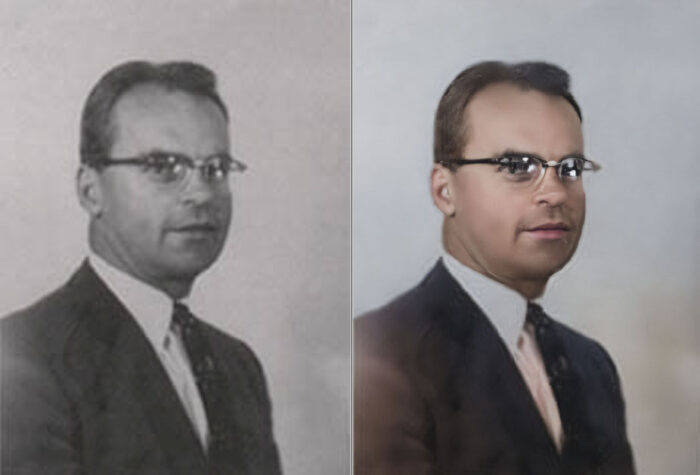
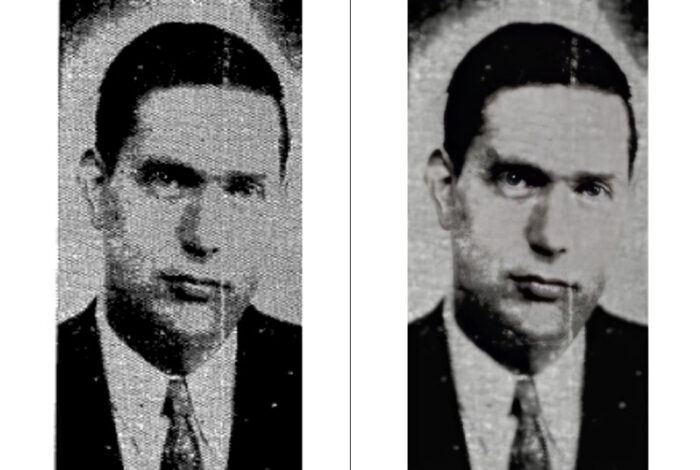
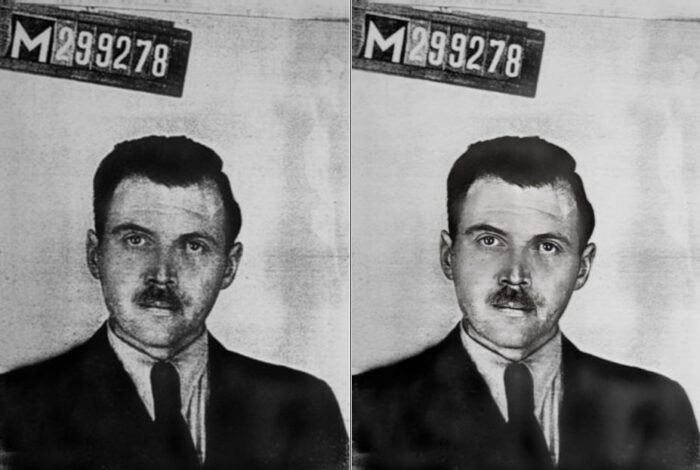
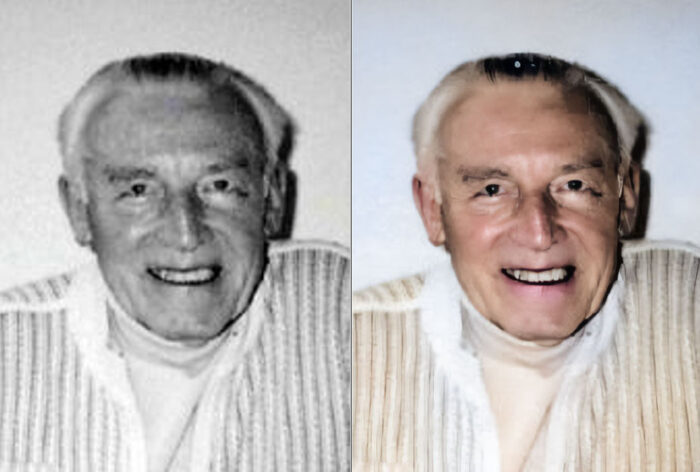

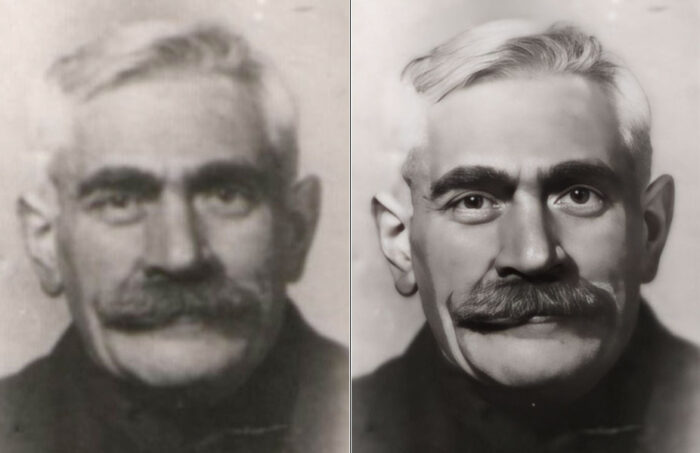
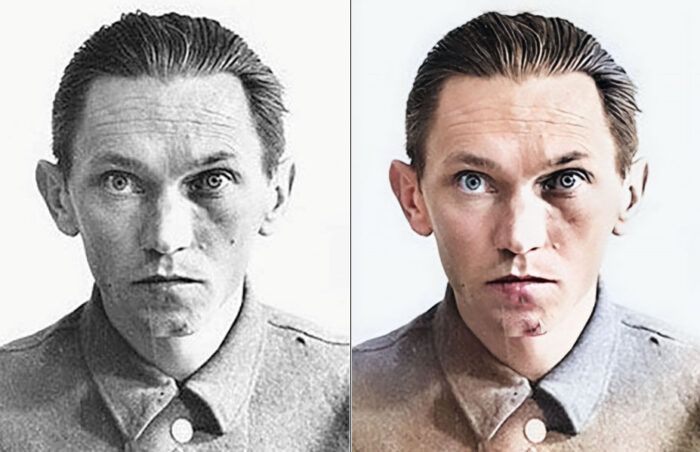
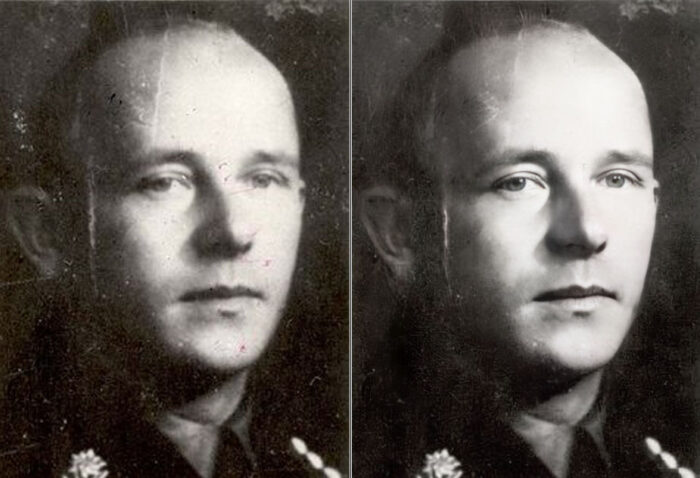
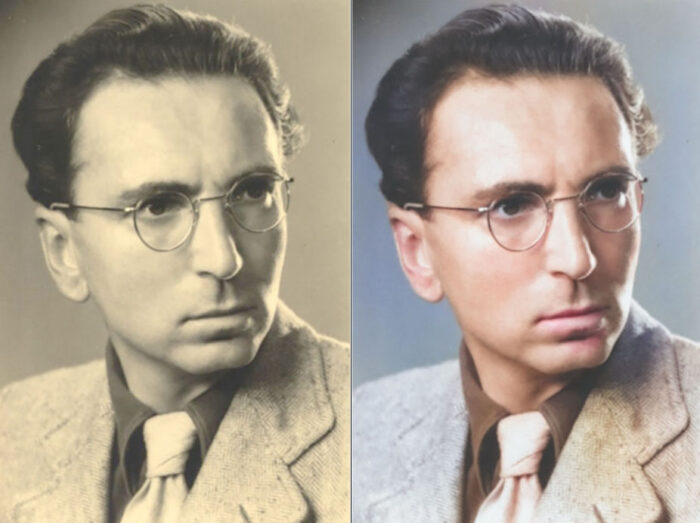
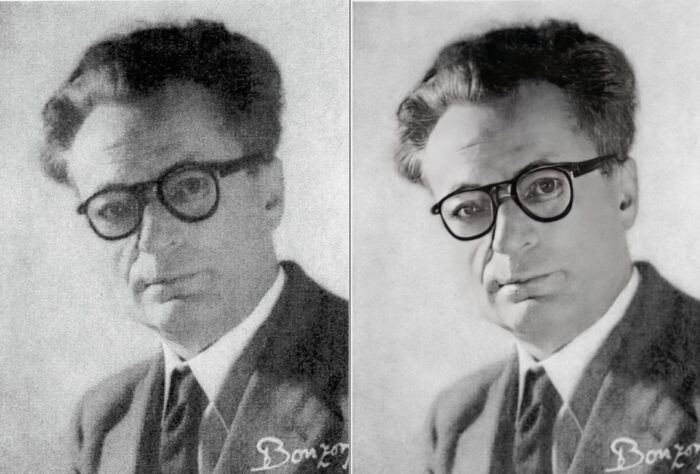
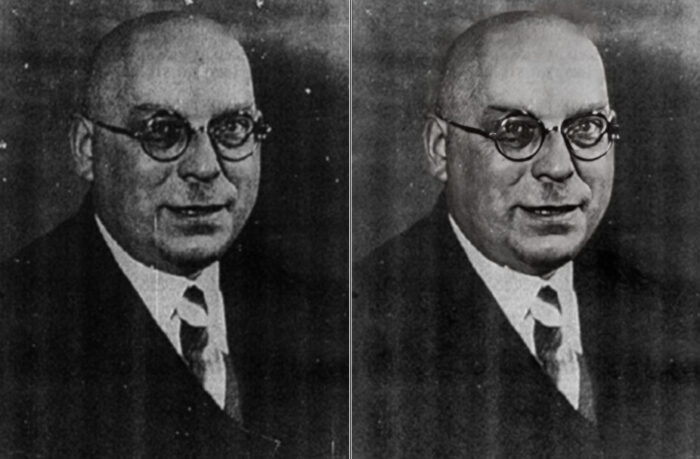
Bibliographic information about this document: Inconvenient History, 2024, Vol. 16, No. 2
Other contributors to this document:
Editor’s comments:
